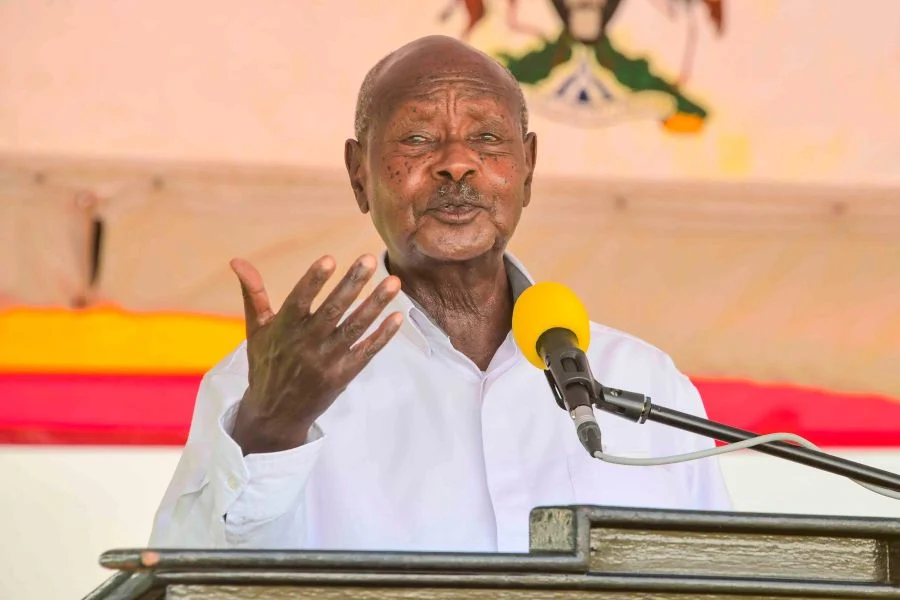In a move that has sparked widespread debate and concern, Ugandan President Yoweri Kaguta Museveni has publicly rejected a recent Supreme Court ruling that declared the trial of civilians in military courts unconstitutional. The ruling, delivered on January 25, 2025, was hailed by human rights advocates and legal experts as a significant step toward upholding the rule of law and protecting civilians from the overreach of military jurisdiction. However, President Museveni’s dismissal of the court’s decision has raised questions about the separation of powers, the independence of the judiciary, and the future of civil liberties in Uganda.
The Supreme Court’s ruling stemmed from a case filed by a group of human rights organizations challenging the practice of trying civilians in military courts. The petitioners argued that such trials violate the constitutional rights of civilians, including the right to a fair trial and the right to be tried by an independent and impartial court. In its landmark decision, the Supreme Court agreed, stating that military courts are designed to handle cases involving military personnel and that trying civilians in such courts undermines the principles of justice and equality before the law.
President Museveni, however, has taken a firm stance against the ruling, describing it as “misguided” and “detrimental to national security.” In a televised address on February 1, 2025, the president argued that military courts are essential for maintaining order and combating crime, particularly in cases involving terrorism, treason, and other serious offenses. He emphasized that Uganda faces unique security challenges that require a robust legal framework, and he expressed concern that the Supreme Court’s decision could weaken the government’s ability to address these threats.
“We cannot afford to be lenient when it comes to matters of national security,” Museveni stated. “Military courts have played a crucial role in ensuring that those who threaten the peace and stability of our nation are held accountable. The Supreme Court’s ruling, while well-intentioned, fails to consider the realities of our security situation.”
The president’s rejection of the ruling has drawn sharp criticism from various quarters. Legal experts have pointed out that the judiciary is an independent branch of government and that its decisions are binding on all parties, including the executive. By publicly disregarding the Supreme Court’s ruling, Museveni has been accused of undermining the rule of law and eroding public trust in the judicial system. “This is a dangerous precedent,” said one prominent lawyer. “If the president can simply ignore a court ruling he disagrees with, what does that mean for the future of democracy and justice in Uganda?”
Human rights organizations have also condemned Museveni’s stance, warning that it could lead to further abuses of power and violations of civil liberties. They argue that military courts lack the transparency and accountability of civilian courts and that trying civilians in such settings often results in unfair trials and harsh sentences. “The Supreme Court’s ruling was a victory for human rights and the rule of law,” said a representative from Amnesty International. “President Museveni’s rejection of the decision is a step backward for justice in Uganda.”
The controversy has also reignited debates about the role of military courts in Uganda’s legal system. While some supporters of the president argue that military courts are necessary for addressing security threats, others believe that their use should be strictly limited to cases involving military personnel. Critics have called for reforms to ensure that civilians are tried in civilian courts, where they can enjoy the full protection of their constitutional rights.
As the debate continues, the implications of President Museveni’s rejection of the Supreme Court ruling remain uncertain. What is clear, however, is that this issue has brought to the forefront critical questions about the balance between security and civil liberties, the independence of the judiciary, and the future of democracy in Uganda. For now, the nation watches and waits to see how this contentious standoff will unfold.

